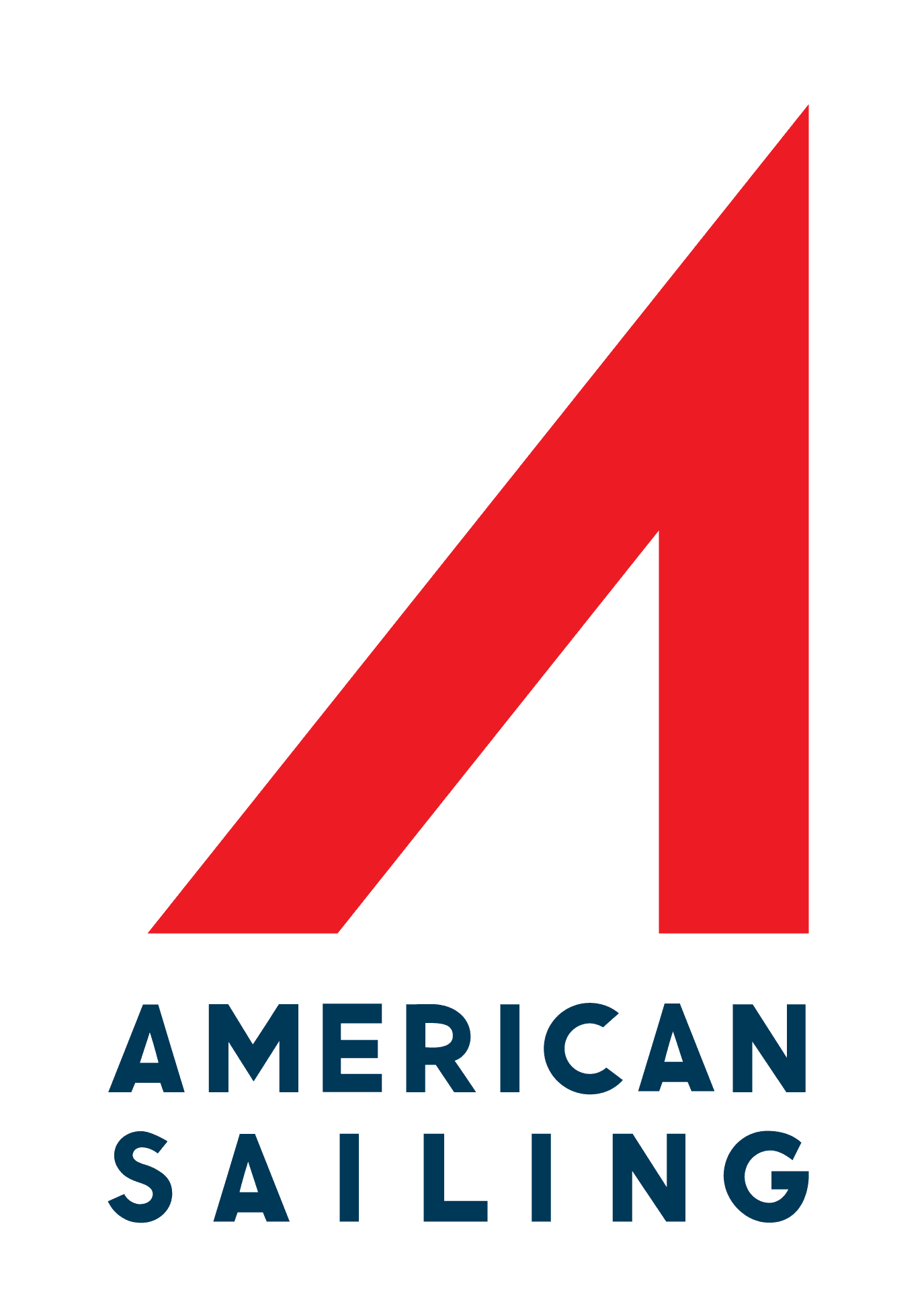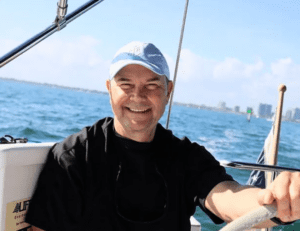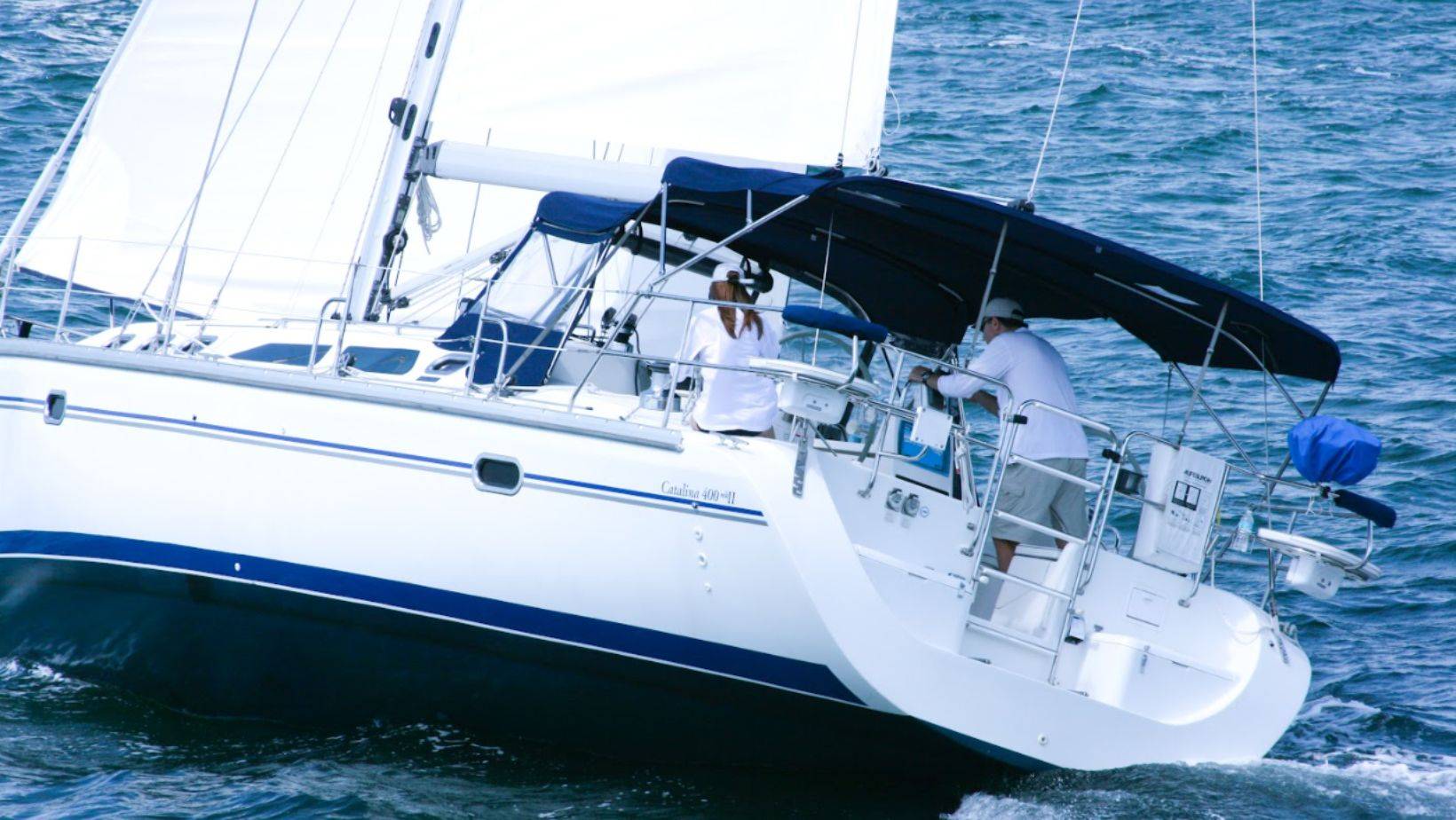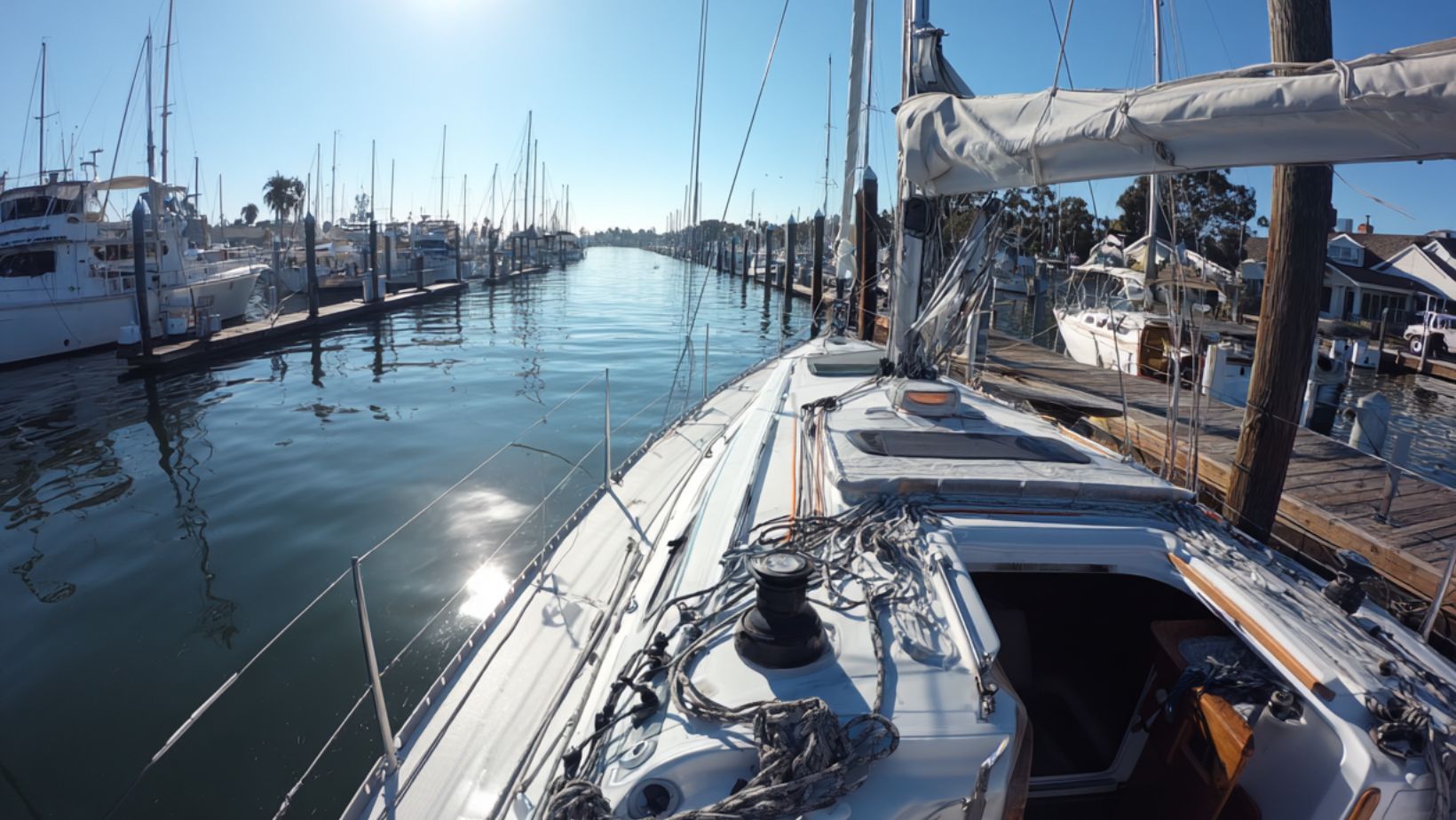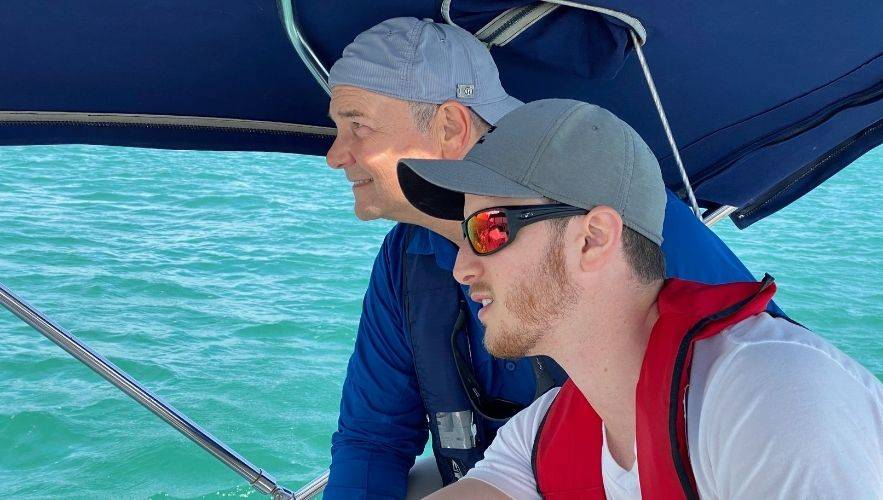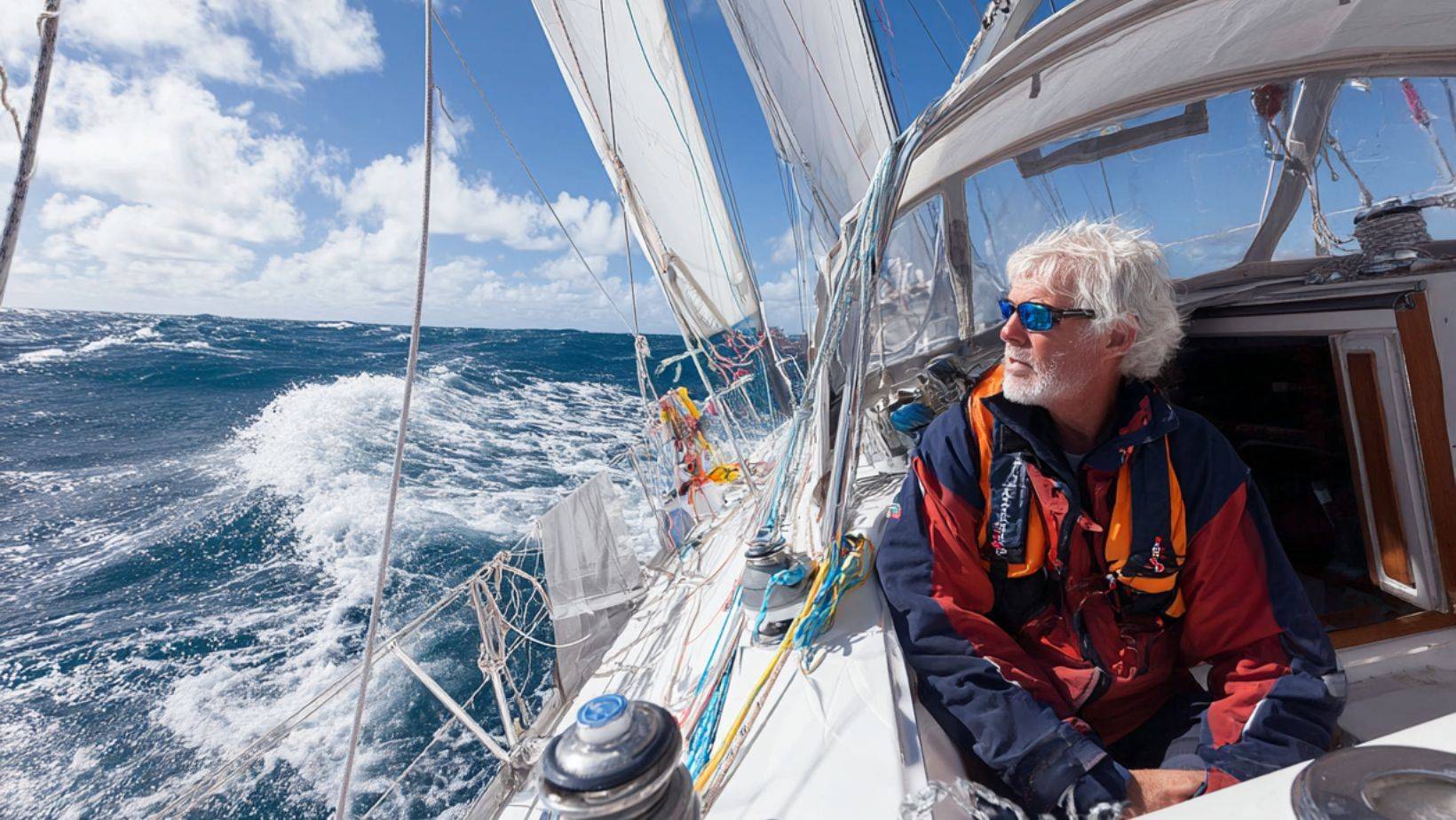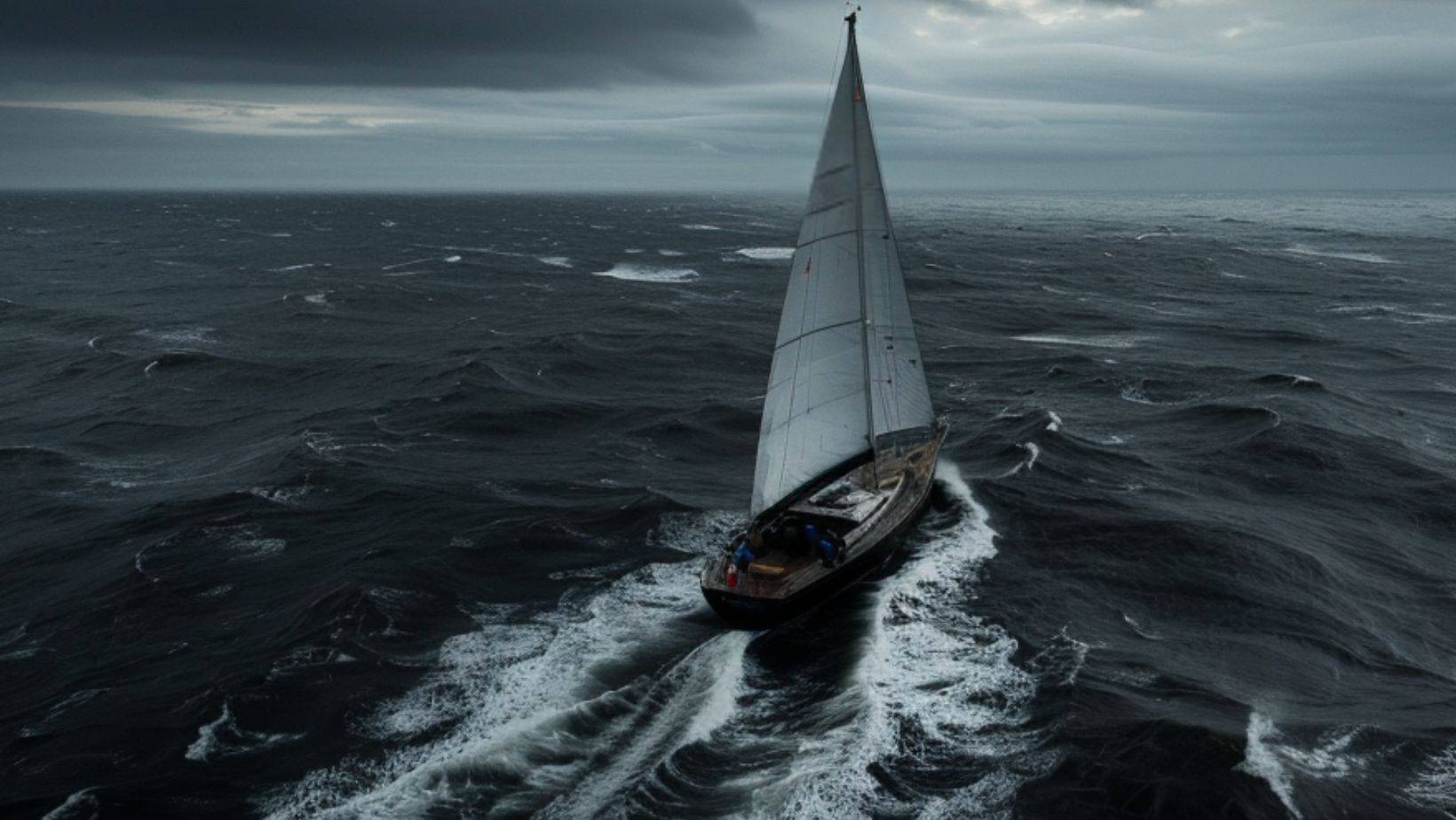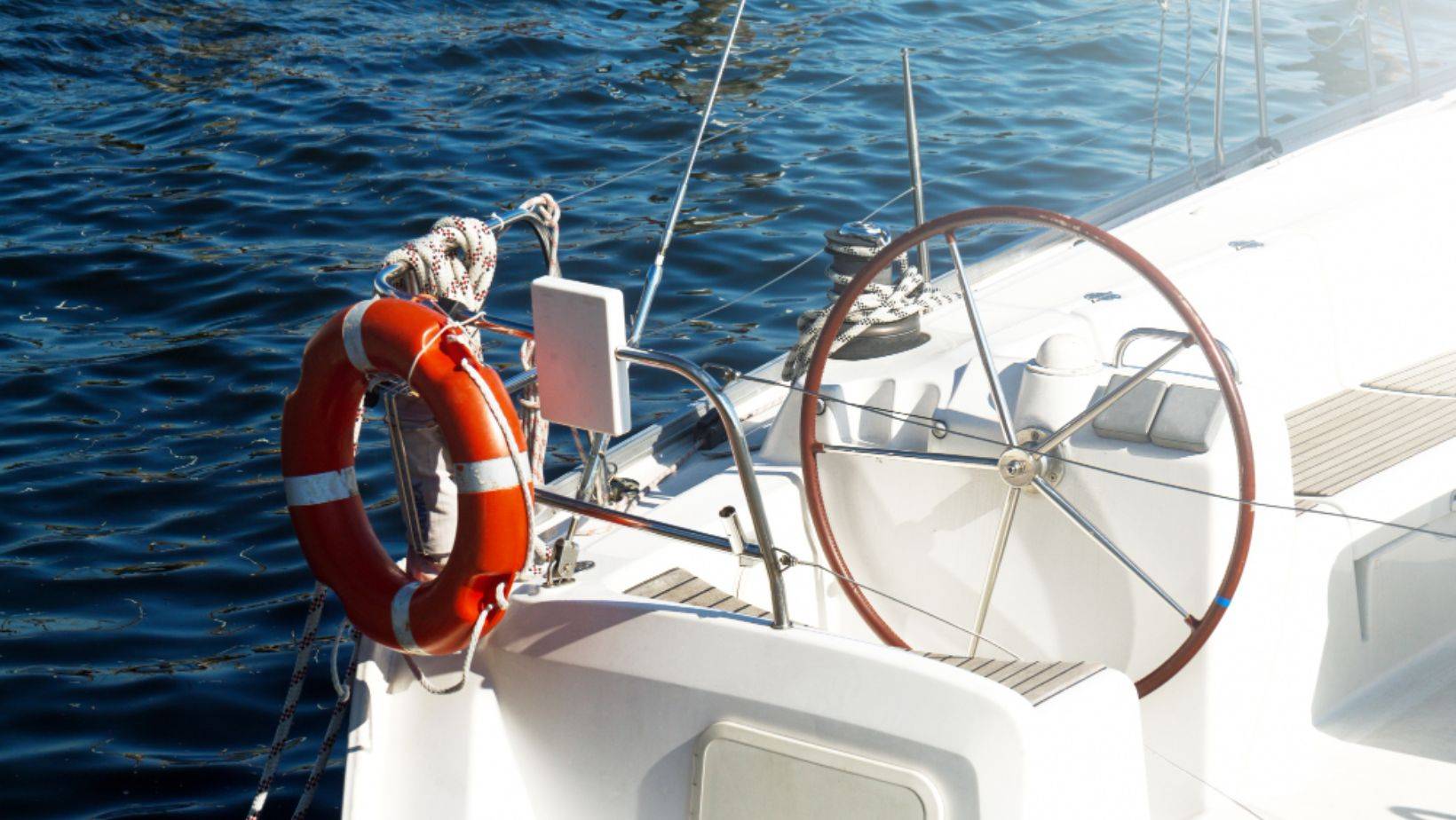The Power of the ASA IPC and a Strong Sailing Resume
Why No Universal Sailing License?
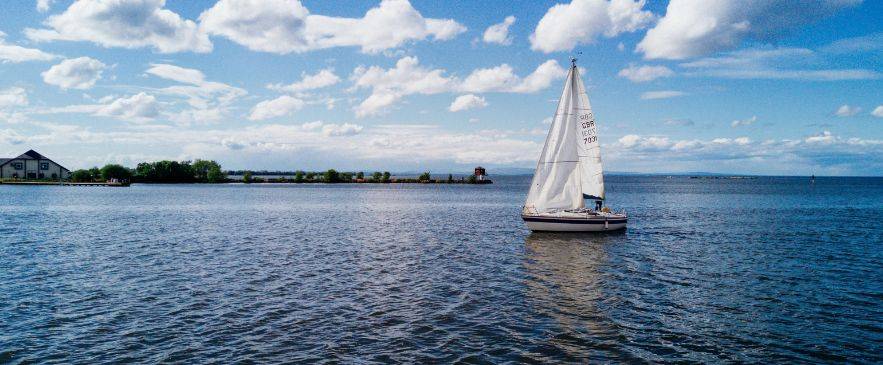
Europe: The Epicenter of Licensing
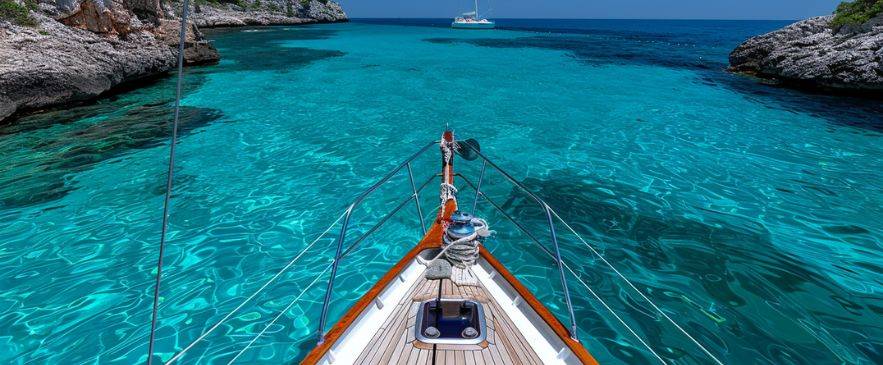
North America: The Freedom of Résumés
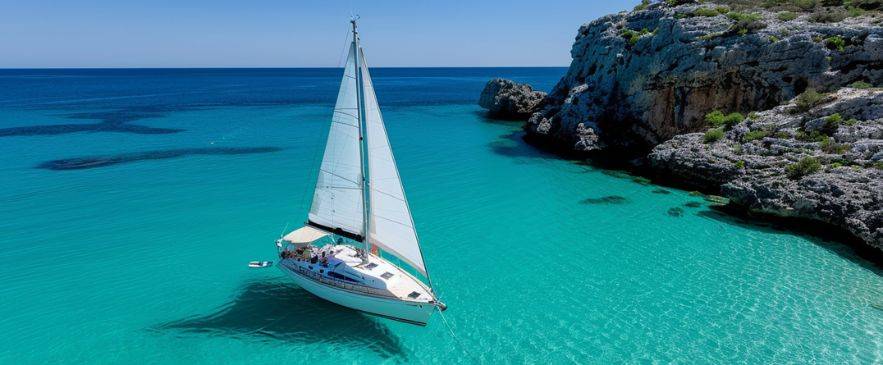
French Polynesia: The Check Ride Culture
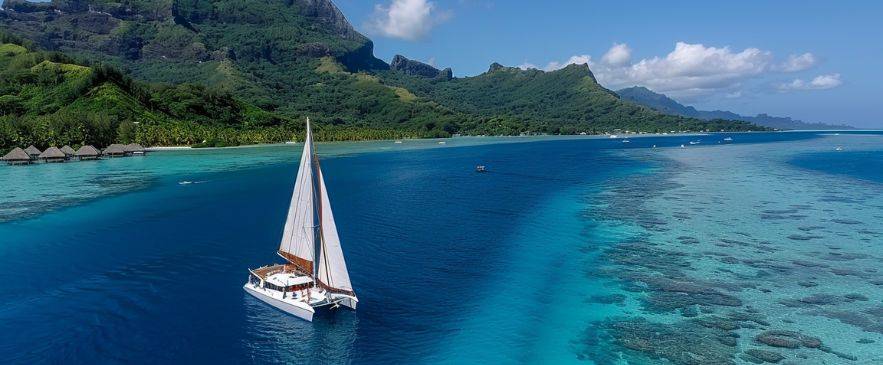
French Polynesia, though part of France, does not require the ICC for private or bareboat charters under 24 meters. Local law does not mandate a formal international certificate. Most charter bases in Tahiti, Raiatea, and Bora Bora simply ask for your sailing résumé, copies of ASA 104 or RYA Day Skipper, and may request a short test sail upon arrival. While an ASA IPC isn’t required by law, it can help speed up approvals with European-operated fleets.
Why Your Sailing Résumé Matters Everywhere
- – Boat size: demonstrating you can handle a 42-foot monohull or 45-foot catamaran.
- – Conditions: coastal versus bluewater, tropical versus temperate, tides, and currents.
- – Roles: proving you were genuinely the skipper.
- – Recency: charter companies prefer experience within the last 1–3 years.
Real-World Examples
Chartering in Croatia typically means you’ll need an ICC or equivalent. The ASA IPC is almost always accepted alongside a detailed sailing résumé showing 40 days as skipper on similar boats, plus a VHF license. Your IPC isn’t legally required in the Bahamas or French Polynesia, but it often streamlines approvals with European-owned fleets. Most importantly, it pairs with your résumé to create a full picture of your competence.
Checklist for Global Chartering
Comprehensive Insights on ASA 104 Bareboat Cruising– ASA 104 Certification
– ASA IPC – Detailed sailing résumé
– VHF certificate for Croatia/Greece
– Active logbook documenting boat size, conditions, and recency
Comparison Table: Certifications and Where They Are Accepted
Table 1: Major certifications, where they are accepted, and key notes.
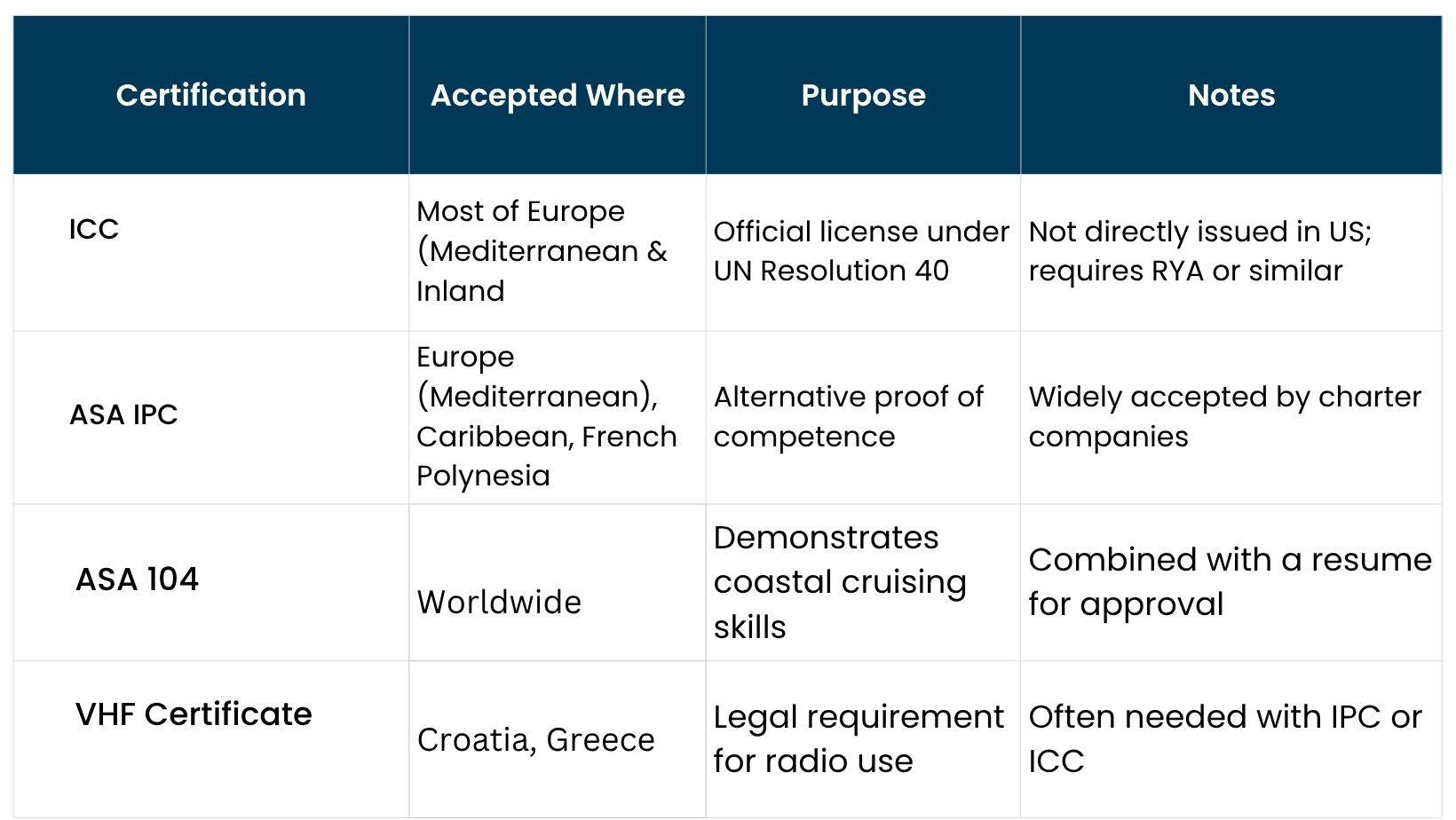
Destination Licensing Summary
Table 2: Regional requirements and typical charter practices.
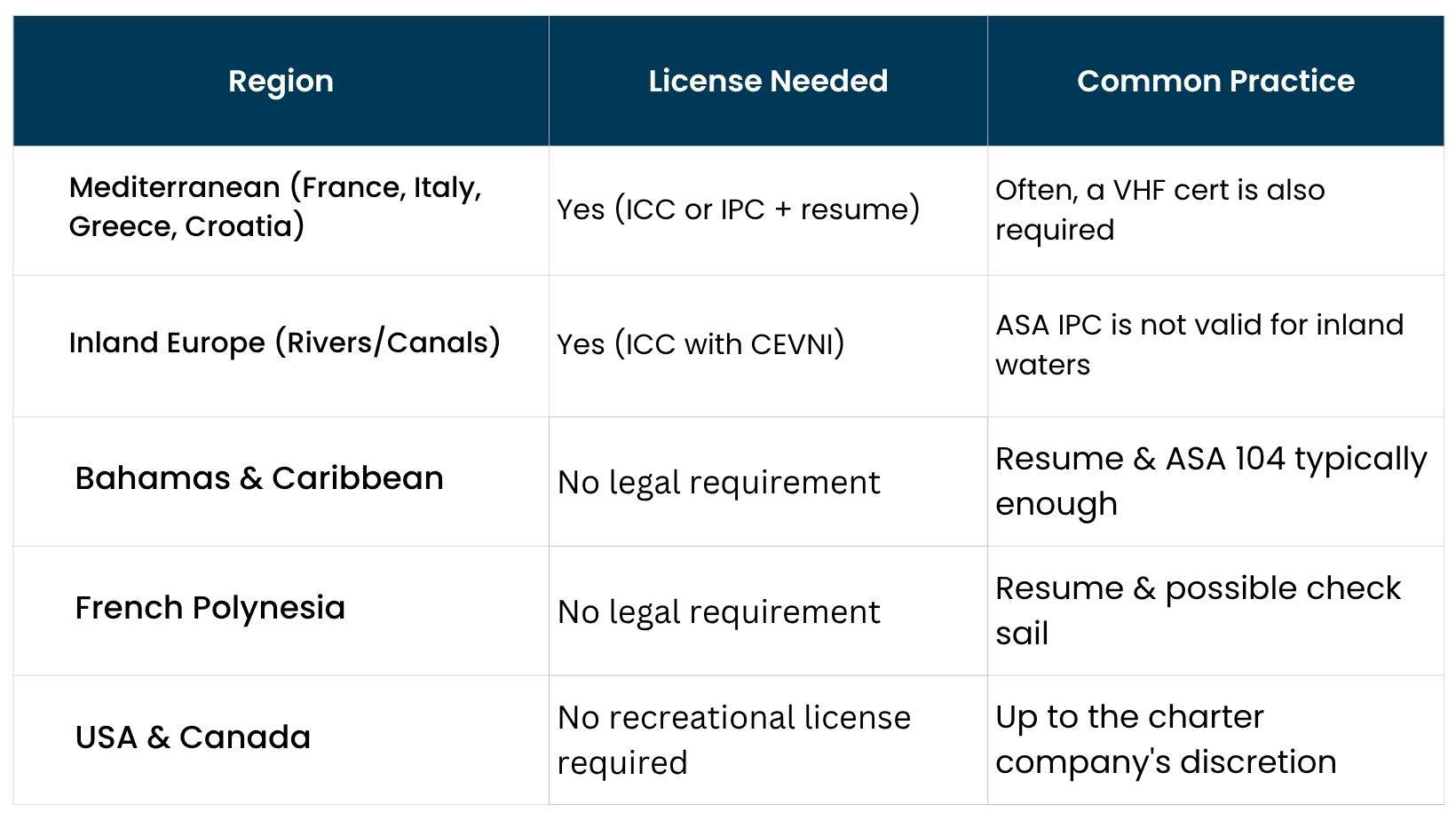
Conclusion
Additional Resources
International Sailing FAQs: Navigating Requirements and Certifications
Licensing requirements vary by region. While Europe, especially the Mediterranean, typically requires an International Certificate of Competence (ICC) or an ASA International Proficiency Certificate (IPC) plus a sailing résumé, North America and French Polynesia generally rely on your sailing experience and certifications like ASA 104.
The ASA IPC is widely accepted in Europe, particularly in Mediterranean countries, alongside a comprehensive sailing résumé. It serves as an alternative to the ICC, which is not directly issued in the United States.
The ASA IPC is a recognized document that demonstrates a sailor‘s competence internationally. It’s accepted in Europe, the Caribbean, and French Polynesia, making it valuable for American sailors looking to charter abroad.
In the Bahamas and French Polynesia, there is no legal requirement for a sailing license. Charter companies primarily assess your sailing résumé and certifications like ASA 104 to determine eligibility.
Your sailing résumé provides essential details about your experience, including boat size, conditions sailed, roles performed, and recency of experience. It complements certifications like the ASA IPC and enhances your credibility with charter companies worldwide.
